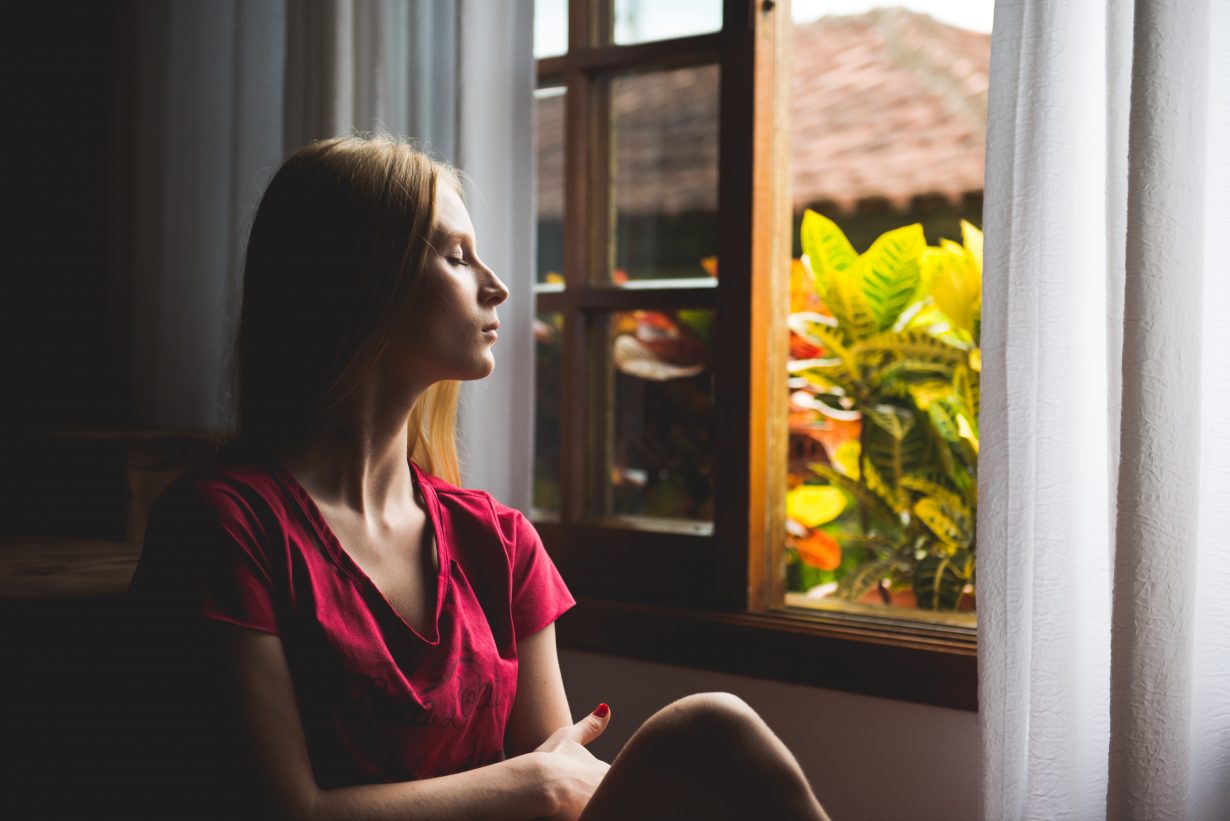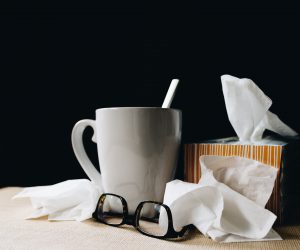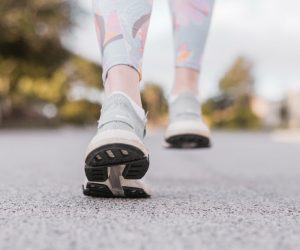
Anxiety Natural Remedies: 15 Ways to Relax & Find Calm
Dr. Josh Axe, DC, DMN, CNS – Anxiety can be a disabling condition that’s accompanied by long-term stress and a decline in overall health. It contributes to many chronic diseases, even when treated with conventional medications. That’s why we need to use natural remedies for anxiety and other mood disorders that will address the root of the problem instead of putting a Band-Aid on your symptoms.
In fact, anxiety can affect people of all ages, with a lifetime prevalence between 4.3 and 5.9 percent. In addition, 40–60 percent of people with anxiety experience signs of depression, which makes it an even more serious and difficult condition to treat properly. (1) And research shows that people with anxiety cannot successfully achieve short or long term remission, with remission rates remaining as low as 38 percent after five years. (2)
The good news is that there are many natural remedies for anxiety that are safe and don’t cause adverse side effects like so many anti-anxiety medications. By eating a clean and well-balanced diet that contains important nutrients like B vitamins, magnesium and omega-3s, and using essential oils for anxiety, you will notice an immediate difference in your mood, energy levels and sleep patterns.
Plus, there are many supplements and lifestyle changes that serve as natural remedies for anxiety.
Causes and Risk Factors
Anxiety is a normal response to stress or a dangerous situation and it’s often referred to as the “fight or flight” response. It’s also the most prevalent mental health condition. Anxiety becomes problematic when it is constant or in reaction to inappropriate circumstances, which over time can negatively affect your day-to-day life. In fact, there are a number of anxiety disorders, including generalized anxiety disorder, obsessive compulsive disorder, social anxiety disorder and panic disorder.
Causes of anxiety include:
• stress
• traumatic life experiences
• thyroid problems
• dysfunctional serotonin
• excessive alcohol
• caffeine or sugar intake
• hormone imbalance
In addition, research shows that risk factors for anxiety disorders include being female, experiencing stressful life events in childhood and adulthood, having a family history of mental health disorders, having limited economic resources and being shy in childhood. (3)
Signs and Symptoms
Although, anxiety is characterized by excessive worrying and tension, other physical and psychological symptoms of anxiety include:
• muscle tension
• chest tightness
• heart palpitations
• high blood pressure
• insomnia
• digestive problems
• panic attacks
• irritability
• difficulty concentrating
• restlessness
• sweating
• anxiousness
• inability to socialize
Conventional Treatment
Typically, anxiety is treated with a combination of psychotropic drugs and cognitive behavioral therapy. Pharmacologic interventions for anxiety include:
• Serotonin-norepinephrine reuptake inhibitors (SNRIs): SNRIs are used to treat anxiety, depression, panic disorder, fibromyalgia and back pain. They work by blocking or delaying the reuptake of serotonin and norepinephrine, which helps to improve your mood. Some SNRI brand names include Cymbalta, Pristiq, Effexor and Savella. Common side effects of these medications include dizziness, nausea, loss of appetite, sexual problems, constipation, weight loss, insomnia, headaches, dry mouth and agitation.
• Selective serotonin reuptake inhibitors (SSRIs): SSRIs are used to correct low serotonin levels in the brain. SSRIs are used to treat anxiety disorders and depression. Some examples of commonly prescribed SSRIs include Lexapro, Prozac, Zoloft and Celexa. Possible side effects of these medications include drowsiness, nausea, diarrhea, headache, sexual problems, agitation, dizziness, dry mouth, insomnia and blurred vision. In fact, research shows that approximately 30–50 percent of patients on SSRIs experience these kind of mild side effects. (4)
• Benzodiazepines: Benzodiazepines are used to enhance the effect of GABA, a neurotransmitter that reduces the activity of neurons that cause anxiety. Benzodiazepine drugs are used to treat anxiety, insomnia, alcohol withdrawal, pack attacks and seizures (due to their anticonvulsant properties). The most popular types of benzodiazepines include Xanax, Valium, Librium and Tranxene. These medications come with side effects like dizziness, headaches, blurred vision, sweating, trouble sleeping, impaired coordination, confusion and an increased risk of falling in elderly patients. (5)
Thankfully, there are natural remedies for anxiety to try as well.
Natural Remedies for Anxiety
Diet
1. Eat a Clean and Well-Balanced Diet
Several studies show that there is a connection between the diet choices and psychology, physiology and behavior. Dietary choices impact a person from the moment he or she is born, to adult life. Consuming too many or too little calories can increase anxiety symptoms and other psychological or emotional disorders. (6) Also, poor diet can lead to many anxiety symptoms, including moodiness, fatigue and abnormal blood sugar levels that cause nervousness and the jitters. A poor diet can also lead to weight gain. And this can impact your body image and bring on feelings of worthlessness and self-doubt.
Eating anti-inflammatory foods can be a natural remedy for anxiety because they are important for neurotransmitters synthesizing and balancing your mood and stress response. In addition, it’s also important to eat healthy fats, unrefined carbohydrates and lean protein. To improve anxiety symptoms, make sure to add vitamin B foods, magnesium rich foods, foods high in calcium and omega-3 foods to your diet too.
• wild-caught fish (like salmon, mackerel, tuna, white fish and herring)
• grass-fed beef
• organic chicken
• nutritional yeast
• eggs
• yogurt or kefir
• leafy greens (like spinach, kale, chard and collard greens)
• fresh vegetables (like celery, bok choy, broccoli, beets and artichokes)
• fresh fruits (like blueberries, pineapple, banana and figs)
• sea vegetables
healthy fats (like avocado, coconut oil and olive oil)
beans (such as black beans, adzuki beans, chickpeas and fava beans)
• legumes (like lentils and peas)
nuts (such as walnuts, almonds and cashews)
seeds (including flaxseeds, chia seeds, hemp seeds and pumpkin seeds)
unrefined grains (like farro, quinoa and barley)
2. Avoid Sugary and Processed Foods
Research shows that consuming foods that have a high glycemic index can contribute to anxiety and depression. Sugar and refined carbohydrates can give you blood sugar highs and lows throughout the day, increasing anxiety, nervousness and fatigue. These foods can cause mood swings and alter your energy levels, making it more difficult to get your anxiety symptoms under control. They also contribute to inflammation and alter your brain structure and neurotransmitter function. (7)
To maintain normal blood sugar levels and improve your anxiety symptoms, stay away from refined foods, including baked goods (like pastries and cookies), sweetened beverages, fast foods, fried foods, processed meat and refined grains (which can be found in cereals and packaged breads).
One specific dietary option that covers many of these bases and may actually influence anxiety is the keto diet. Preliminary research in animals has found that following this high-fat, low-carb diet may result in a lowered risk for anxiety. (8)
3. Limit Caffeine and Alcohol
Too much caffeine or alcohol can increase anxiety symptoms like moodiness, nervousness and the jitters. A study published by the British Journal of Psychiatry found that abstinence from alcohol is associated with a lower risk of anxiety. To reduce anxiety, avoid alcohol completely or limit your alcohol intake to 1–3 drinks per week, but no more than two at a time. (10)
Research also shows that consuming too much caffeine can induce anxiety symptoms, and people with panic disorder and social anxiety seem to be particularly sensitive to the effects of caffeine. (11) Limit coffee or black tea to no more than one cup per day.
Supplements
4. Ashwagandha
Ashwagandha is an adaptogen herb that is often used as a natural remedy for anxiety because it helps to stabilize the body’s response to stress. In a systematic review that assessed data on the effectiveness of ashwagandha as a treatment for anxiety, researchers found that most studies concluded with significant improvement in anxiety symptoms with ashwagandha therapy. (12)
However, ashwagandha is not only a stress reliever. It also protects the brain from degeneration and it works to improve anxiety symptoms by destroying free radicals that cause damage to the brain and body. Research shows that ashwagandha helps to improve focus, reduce fatigue and fight anxiety without the side effects of most anti-anxiety medications. (13)
5. Kava Root
Research shows that kava root can be used to treat anxiety because it’s a nonaddictive and non-hypnotic anxiolytic. Kava is used to improve mood, ease anxiety and boost sociability. It works by stimulating dopamine receptors and inducing euphoria.
In fact, a randomized controlled trial conducted in Australia found that kava can be considered a first-line therapy for generalized anxiety disorder and it’s shown to be safe for people undergoing treatment. (14) And a meta-analysis reported by Cochrane, which involved 7 trials, suggests that there are significant effects from kava treatment for anxiety with few side effects, which are all considered mild. (15)
Take kava under the guidance of your health care provider, as it can interact with certain medications. Also, do not consume alcohol if you are using kava and be aware of the most common side effects, including headache, drowsiness and diarrhea.
6. 5-HTP (5-hydroxytryptophan)
Supplementing with 5-HTP, which is synthesized from tryptophan (an essential amino acids that acts as a mood regulator), can help to treat a number of issues that are associated with anxiety, including trouble sleeping, moodiness and headaches. 5-HTP increases serotonin, which is a calming neurotransmitter that transmits signals between the nerve cells and alters brain functions that regulate your mood and sleep patterns.
Studies show that 5-HTP therapy is associated with a significant reduction in anxiety due to its calming effects. However, it’s important that you do not take 5-HTP with any prescription anti-anxiety or antidepressant medications. (16, 17)
7. GABA (Gamma aminobutyric acid)
GABA is an amino acid that is responsible for decreasing anxiety in the nervous system, and it also helps to relax your muscles. It’s used for a number of conditions, in addition to relieving anxiety, including reducing PMS, relieving insomnia, stabilizing blood pressure, treating ADHD, burning fat and relieving pain.
GABA is also an inhibitory neurotransmitter that can cause a sedative effect, helps regulate nerve cells and calms anxiety. Anti-anxiety drugs, like Xanax and Valium, work to increase the amount of GABA in the brain. There are GABA supplements available in your local health food or vitamin store. Or, another option is to use valerian root, which naturally increases your brain’s GABA level and helps to calm anxiety. (18)
8. Magnesium
Magnesium plays many important roles in the body, and magnesium deficiency is one of the leading deficiencies in adults. So if you’re struggling with anxiety, you may want to try taking a magnesium supplement. (19) Magnesium helps to relax your muscles and calm the nervous system. Also, it’s vital for GABA function and for regulating certain hormones that are crucial for calming the brain and promoting relaxation.
Magnesium is commonly used to combat anxiety, poor digestion, muscle spasms and trouble sleeping. Look for magnesium in citrate, chelate and chloride, which are forms that the body absorbs better. However, be aware that too much magnesium can cause diarrhea, so be careful with the dose. Because of this, start with smaller amounts of magnesium and work your way up to a dose that’s effective for you.
9. Vitamin B Complex
B vitamins help to combat stress and stabilize your mood. Vitamin B6, in particular, serves as a natural remedy for anxiety because it works to boost mood, balance blood sugar levels and maintain a healthy nervous system. In fact, symptoms of a vitamin B6 deficiency include anxiety, irritability, depression, changes in mood, muscle pains and fatigue.
In addition, Vitamin B12 is also important for fighting chronic stress, mood disorders and depression. It helps to improve your concentration, improve energy levels and allow your nervous system to function properly. (20)
Essential Oils
10. Lavender Oil
Lavender oil has been shown to reduce anxiety and help relax the body. A multi-center, double-blind, randomized study conducted in Germany found that Silexan, an oral lavender oil capsule, was just as effective as benzodiazepine, anti-anxiety medication that usually induces sedation and had a high potential for drug abuse. (21)
Research also shows that using lavender oil topically or inhaling lavender can help to induce calmness and relieve symptoms of anxiety like nervousness, headaches and muscle pain. (22) Put 3 drops of lavender oil in your palm and rub it onto your neck, wrists and temples. You can also diffuse lavender oil at home or at work, inhale it directly from the bottle for immediate relief, and add 5–10 drops to warm bath water to fight anxiety naturally.
11. Roman Chamomile
Roman chamomile essential oil is used to calm nerves and reduce anxiety because of its mild sedative and relaxation-promoting properties. Inhaling roman chamomile works as an emotional trigger because the fragrance travels directly to the brain to help fight anxiety symptoms.
A study published in Alternative Therapies in Health and Medicine found that when chamomile oil is taken orally, it causes a significant reduction of anxiety and depression symptoms when compared to a placebo. (23) Diffuse 5 drops of Roman chamomile oil at home or at work, inhale it directly from the bottle or apply it topically to the neck, chest and wrists. Roman chamomile is also gentle enough for children to use as a natural remedy for anxiety.
Lifestyle
12. Physical Activity
Regular physical activity helps to improve sleep quality, reduce inflammation, boost confidence, improve energy levels and ease stress and tension. People with anxiety can benefit from exercises like yoga and tai chi because they promote relaxation and involve deep breathing techniques that help to reduce stress and muscle tension.
A 2012 review published in Alternative Medicine Review found that of the 35 trials that addressed the effects of yoga on anxiety and stress, 25 of them noted a significant decrease in stress and anxiety symptoms as a result of practicing yoga. (24)
In fact, yoga changes your brain by impacting your GABA levels and suppressing neural activity. Besides yoga and tai chi, you can practice other exercises that help to calm the body. For example, running, walking or hiking outdoors, lifting weights and even dancing can help to combat stress.
13. Get Enough Rest
Researchers at the University of Berkeley found that a lack of sleep can amplify anticipatory anxiety by stimulating regions in the brain that are associated with emotional processing. This means sleep deprivation can contribute to common anxiety symptoms. These symptoms include excessive worrying, and by restoring proper sleep patterns, people with anxiety can reduce feelings of fear, worry and tension. (25)
Aim to get 7–9 hours of sleep every night in order to reduce stress, balance your hormones, prevent moodiness and reduce fatigue. You can also diffuse lavender or Roman chamomile essential oil in your bedroom to help induce relaxation.
14. Meditate
A 2013 randomized controlled trial published in the Journal of Clinical Psychiatry found that mindfulness meditation had a beneficial effect on anxiety symptoms and improved stress reactivity and coping mechanisms when faced with a stress challenge. (26)
If you’re new to this, try guided meditation as one of your natural remedies for anxiety, which is available on YouTube and podcasts. It will help to reduce your cortisol levels, improve your sleep quality, boost your productivity at home and at work, and treat your anxiety.
15. Find Support
In your effort to overcome anxiety, finding support from your family, friends, community and professional therapists can be extremely helpful. For example, cognitive behavioral therapy is a type of psychotherapy that focuses on a person’s underlying thoughts in determining how we act and feel. Therapists help to change your thought patterns and reactions so that you can better-handle stressful situations.
If your anxiety is affecting your quality of life, consider joining a local support group or connecting with other people who are dealing with anxiety. Together, you can use these natural remedies for anxiety with members of your community and work through tough situations with their support.
Precautions
If you choose to use any of these natural remedies for anxiety, do so under the guidance of your health care provider. Also, make sure that he or she knows what other medications you are taking in order to avoid dangerous interactions.
For example, some of these natural remedies, including kava root, 5-HTP and GABA, do interact with commonly prescribed anti-anxiety and anti-depression medications. So, do not use these supplements or herbs along with prescribed drugs.
Key Points
• Anxiety is a normal response to stress or a dangerous situation. However — referred to as the “fight or flight” response — it’s the most prevalent mental health condition.
• Research shows that people with anxiety cannot successfully achieve short- or long-term remission, with remission rates remaining as low as 38 percent after five years.
• Conventional treatments for anxiety include a combination of psychotropic drugs and cognitive behavioral therapy, though there are natural remedies for anxiety too.
Natural remedies for anxiety offer alternative therapies that don’t cause adverse side effects and have been proven effective. These natural remedies for anxiety include:
• Supplements like magnesium, GABA and vitamin B complex
• Herbs like kava root
• Essential oils
• Dietary and lifestyle changes
Try these natural remedies for anxiety if you suffer from this condition.
To read the original article click here.
For more articles from Dr. Axe click here.







